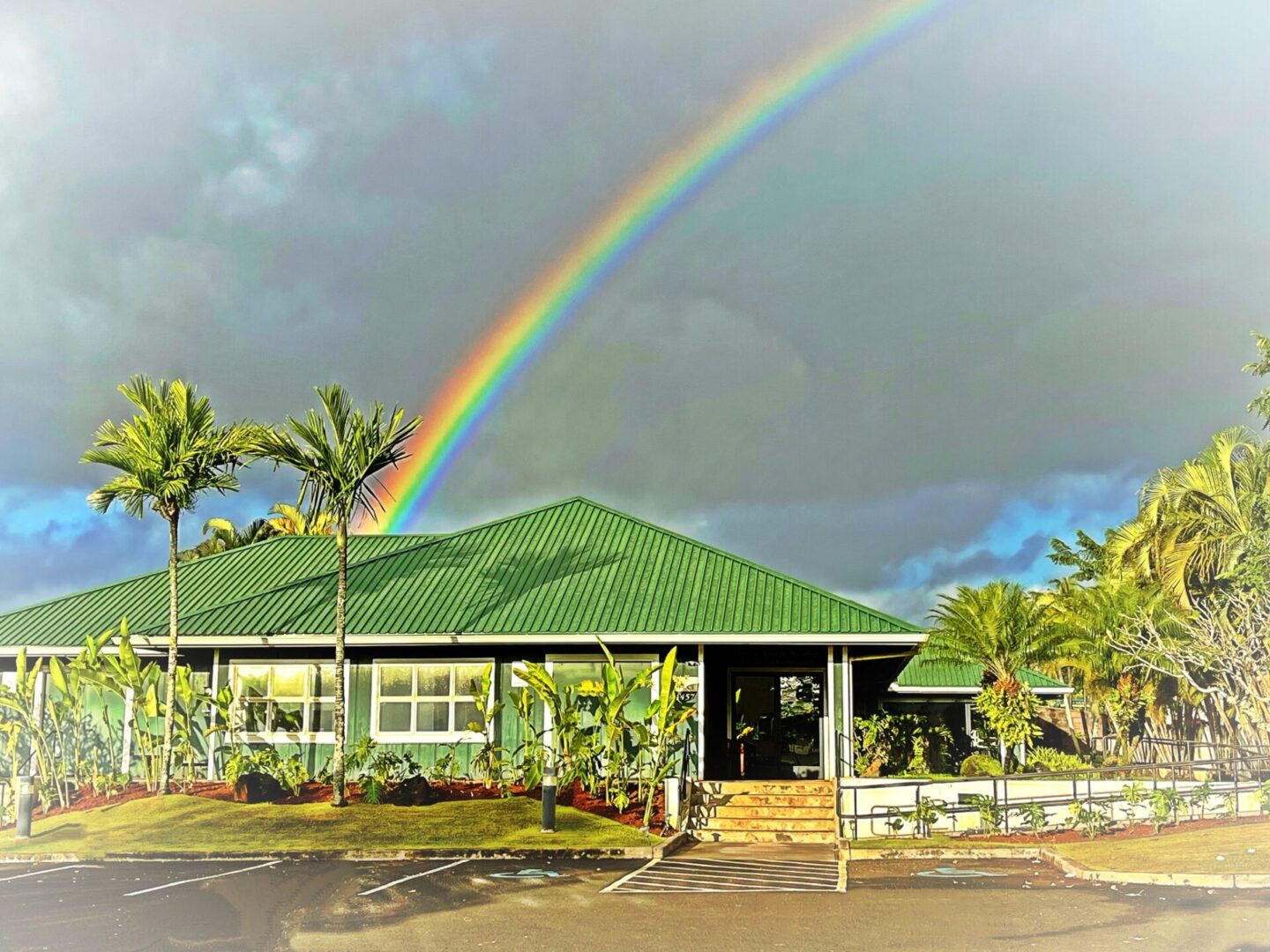Resources
Nā Kumuwaiwai
Frequently Asked Questions
Anyone facing a potentially life-limiting illness should be aware of all the care options, including palliative and hospice care. Knowing when to consider hospice care is important for planning. Signs for serious consideration of hospice care are when the patient:
No longer responds as expected to treatments for the disease.
Expresses concern that the burden of treatment is outweighing the benefits.
Is inconsistent pain or when other physical symptoms are not relieved.
Makes repeated, short-term trips to the hospital and/or emergency room.
Is despondent about his or her condition and quality of life.
You can always contact Kaua`i Hospice at (808) 245-7277. We’re available 24 hours a day, seven days a week.
No. If a patient’s condition improves or if the patient and family so choose, they can be discharged from hospice care. If the discharged patient should later need to return to hospice care, they can resume services.
Anyone can refer a patient to Kaua`i Hospice. We will work with the patient’s doctor to verify the patient’s appropriateness for hospice care.
It varies from patient to patient, but we work with you to develop a personal care plan built around the patient’s needs. Every patient of Kaua`i Hospice has an interdisciplinary team of experts assigned to his or her care. We are available 24 hours a day, seven days a week, to answer questions and provide the support you need.
Medicare and Medicaid both provide coverage for basic hospice services, and most private insurance policies have some hospice provisions. Families should check with their health insurance provider specifically. However, Kaua`i Hospice is committed to serving patients regardless of their insurance.
Hospice includes help for caregivers in the form of training, emotional support, and respite care. In addition, Kaua`i Hospice provides 13 months of bereavement support following the death of a family member.
No. Hospice care is patient-centered care emphasizing comfort, peace, and quality of life. Hospice care is built on the belief that every day of every life matters. We aim to help patients facing a life-limiting illness live in comfort and with dignity. Hospice care doesn’t hasten or postpone dying. Just like an obstetrician provides specialized medical expertise and support when we enter the world, hospice provides expertise and support during the last phase of life.
Lists and Links
National Hospice and Palliative Care Organization
Non-profit organization representing hospice and palliative care programs and professionals. A wealth of research and resources surrounding end-of-life care. Visit Site
Kokua Mau
Kokua Mau is a partnership of individuals and organizations working with the general public and with the leaders of healthcare and government to improve how we in Hawai‘i are cared for at the end of our lives. Visit Site
Kauai Agency on Elderly Affairs
Kokua Mau is a partnership of individuals and organizations working with the general public and with the leaders of healthcare and government to improve how we in Hawai‘i are cared for at the end of our lives. Visit Site
Hospice Foundation of America
A professional and public resource for information on hospice, caregiving, and loss. Visit Site
Hospice Net
Resource for patients and families facing a life-limiting illness. Visit Site
Aging with Dignity
Practical information, advice, and legal tools to make sure a patient’s wishes are respected. Visit Site
Americans for Better Care of the Dying
Resources for patients, caregivers, and professionals, as well as information on public policy directed at quality end-of-life care. Visit Site
Growth House
A comprehensive collection of reviewed resources for end-of-life care. Visit Site
Five Wishes
Language Assistance Services
English
ATTENTION: If you speak English, language assistance services, free of charge, are available to you.
Tagalog
PAUNAWA: Kung nagsasalita ka ng Tagalog, maaarikanggumamit ng mgaserbisyo ng tulongsawikanangwalangbayad.
Chinese
注意: 如果您使用繁體中文,您可以免費獲得語言援助服務
Korean
주의: 한국어를사용하시는경우, 언어지원서비스를무료로이용하실수있습니다
Spanish
ATENCIÓN: sihablaespañol, tiene a sudisposiciónserviciosgratuitos de asistencialingüística.
Russian
ВНИМАНИЕ: Есливыговоритенарусскомязыке, товамдоступныбесплатныеуслугиперевода.
Portuguese
ATENÇÃO: Se falaportuguês, encontram-se disponíveisserviçoslinguísticos, grátis.
Japanese
注意事項: 日本語を話される場合、無料の言語支援をご利用いただけます
Samoan
MO LOU SILAFIA: Afai e tetautalaGaganafa’aSāmoa, o loo iaiauaunagafesoasoan, e faifua e leai se totogi, mooe
Marshallese
LALE: ÑekwōjkōnonoKajinṂajōḷ, kwomaroñbōkjerbal in jipañilokajinṇeaṃejjeḷọkwōṇāān.
Tongan
FAKATOKANGA’I: Kapau ‘okuke Lea-Fakatonga, ko e kau tokonifakatonu lea ‘okunaufaiatu ha tokonita’etotongi, pea teke lava ‘o ma’uia.
Hawaiian
LALE: Ināhoʻopukaʻoei ka ʻōlelo [hoʻokomoʻōlelo], loaʻakekōkuamanuahiiā ʻoe.
Bisayan
ATENSYON: Kung nagsulti ka og Cebuano, aduna kay magamitngamgaserbisyosatabangsalengguwahe, ngawalaybayad.
Ilocano
PAKDAAR: Nu saritaemti Ilocano, tiserbisyo para
tibaddangtilengguahengaawananbayadna, ketsidadaan para kenyam

